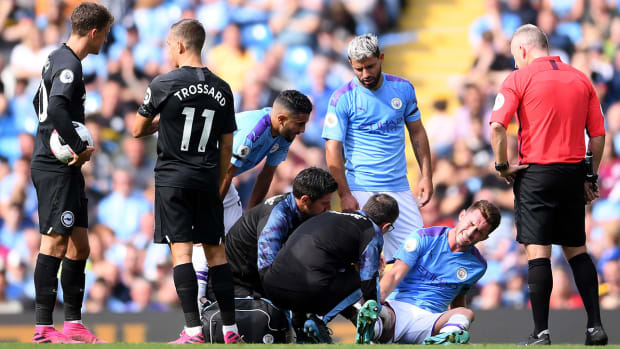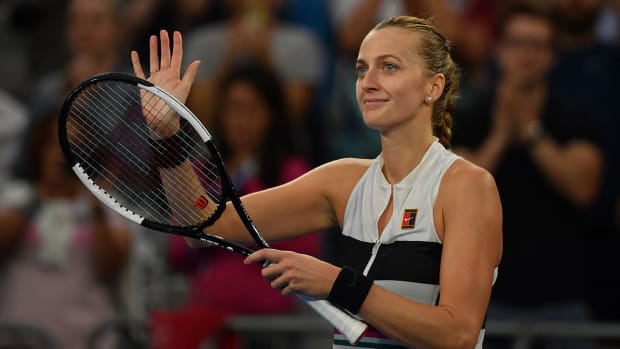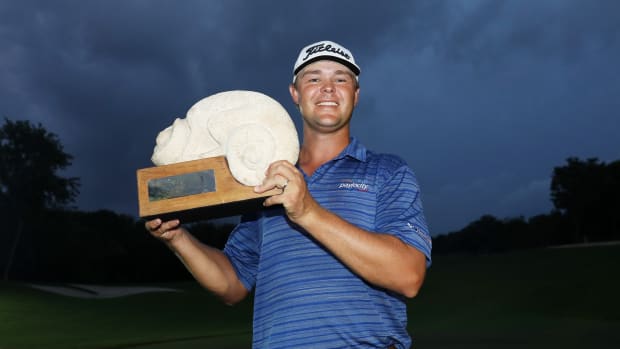Kostner calls doping accusations 'intolerable'
ROME (AP) Facing a lengthy ban, former figure skating world champion Carolina Kostner claimed in an interview Tuesday that she had nothing to do with the doping case involving her former boyfriend and Olympic race walking gold medalist Alex Schwazer.
The Italian Olympic Committee's anti-doping prosecutor recommended Friday that Kostner be banned for four years and three months - longer than the 3 1/2-year ban that Schwazer is serving - for helping Schwazer evade a test and other infractions.
''If I knew Alex was doping I would have convinced him to confess, for his own health,'' Kostner told the Fatto Quotidiano newspaper. ''Being accused of aiding him is intolerable for me. I've never doped, I've never helped Alex dope and I knew nothing about it until the test came up positive. How is it possible that they seek a heavier ban for me compared to so many athletes banned for doping?''
The prosecutor's request was made as part of a widespread doping inquiry set off when Schwazer tested positive for EPO before the 2012 London Olympics.
The 27-year-old Kostner, the 2014 Olympic bronze medalist and 2012 world champion, is taking this year off from competition but a long ban would rule her out of the 2018 Olympics in Pyeongchang, South Korea, and could end her career.
Her case will now be decided by CONI's internal doping court.
Schwazer, who won the 50-kilometer walk at the 2008 Beijing Olympics, failed an out-of-competition test before arriving in London and was removed from Italy's team before competing. He admitted using the blood-boosting hormone EPO, and said he was quitting the sport.
Schwazer also admitted to consulting with Lance Armstrong's banned sports doctor, Michele Ferrari.
Kostner has acknowledged accompanying Schwazer on a visit to Ferrari's office in 2010, although she maintains that she did not know he doped.
However, published reports of Kostner's testimony to prosecutors in Bolzano showed she admitted to lying to inspectors from the World Anti-Doping Agency who came to her home in Germany looking for Schwazer on July 30, 2012 - days before Schwazer flew to London for the Olympics.
Ultimately, the WADA inspectors caught up with Schwazer in Italy and that's when he tested positive.
''I had just a few seconds to decide what to do,'' Kostner said. ''I lied on his request. But I never - never - covered for him, because I had no idea what he was doing.''
Kostner was also questioned by prosecutors about a banned altitude chamber that Schwazer slept with.
''He explained that it was to help his breathing,'' Kostner said. ''I was so happy that he finally came to see me for a couple of days that I wouldn't have lost time discussing it.
''Thinking it over, I shouldn't have had so much trust,'' Kostner added. ''But when you see a machine you don't associate it with doping.''
Kostner has also won two silvers and three bronzes at the worlds, and is a five-time European champion. It remains unclear if she could be banned retroactively and stripped of medals.
''I could skate just for myself and do shows all over the world,'' Kostner said.
However, a CONI ban would likely prevent her from performing in shows supported by national or international sports federations.
Speaking at an anti-doping convention Tuesday, CONI president Giovanni Malago expressed sympathy for Kostner and displeasure with WADA's rules, which punish those covering up doping more severely than the dopers themselves.
''As a friend of Carolina's I think this situation is unfair,'' Malago said. ''But as CONI president, I realize we must follow WADA's rules.''




